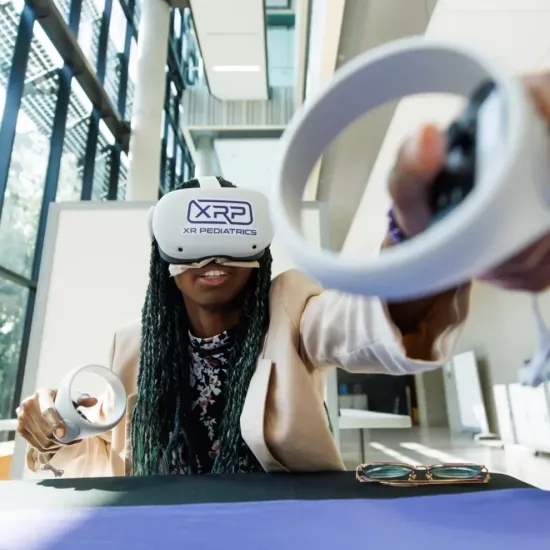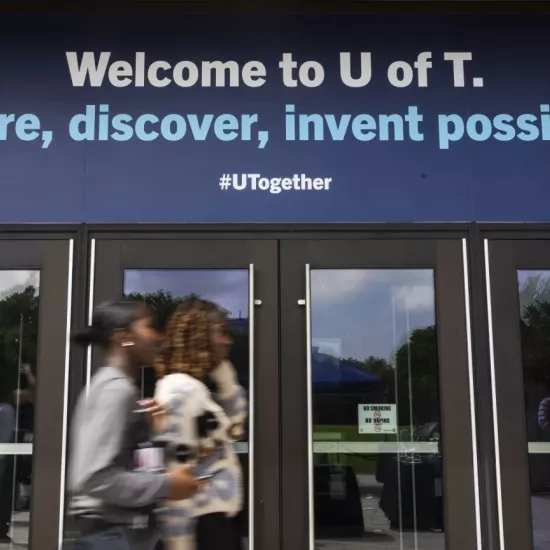A possible future for expanding cognition: Ted Chiang shares thoughts on being a cyborg

What is the relationship between technology and human cognition? How have writing and language been deployed as technologies throughout human history? And what does the future of computers hold—will it give rise to a new kind of cognitive technology?
A sold-out crowd gathered to hear acclaimed science fiction author Ted Chiang reflect on these and related questions last week at an event co-hosted by the Schwartz Reisman Institute for Technology and Society (SRI) and the Department of English at the University of Toronto.
Hosted by Avery Slater, an assistant professor at the University of Toronto's Department of English and faculty fellow at SRI, the event saw Chiang lecture on the ways in which we imagine—or perhaps cannot begin to imagine—the technologies of the future. His lecture then delved into everything from the transcription of speech into writing to the differences between oral cultures and cultures of literacy, and the idea that computer programming languages are “tools for thinking.”
Chiang’s lecture was followed by an on-stage conversation with Slater, an expert in 20th and 21st century literature whose research incorporates the history of AI, science and technology studies, human and non-human languages, and emerging issues in the automation of creativity. After the discussion, Chiang answered questions from the audience.



